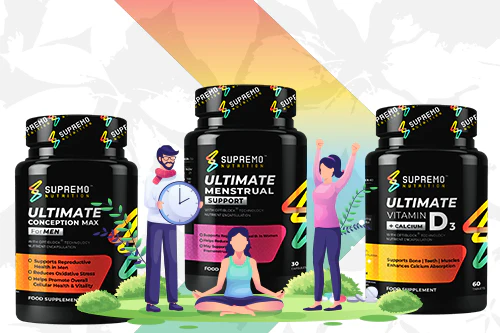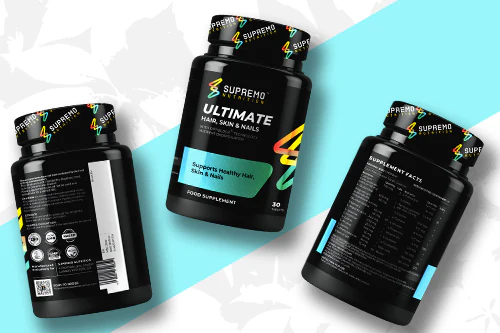Importance of Winter Special Dietary Health & Nutritional Supplements for Winter Wellness!
Share The best health & nutritional supplements must be taken during these winter months to keep us healthy. Sudden weather and lifestyle changes often make us more vulnerable to falling sick and become major causes of nutritional deficiencies. Winter is not a season, it’s an act of affirmation to celebrate the joy of beauty in a snowflake. Snowy trees kiss so gently in a white quilt; perhaps we get it all in the cosy winter season. Fluffy snowflakes on the road and a frozen lake make a picturesque panorama these months. Now we see the phenomenal shedding of leaves or abscission, air has become frizzy cool, and refreshing. Hence, our body needs extra care to stay healthy during the fall and winter months to fortify ourselves against major health issues – especially our immunity and respiratory health, often caught cold coughs, severe digestive syndromes or Gastroesophageal reflux disease (GERD), skin dryness, and so on. Shorter days and low exposure to sunlight put us in a health challenge to get proper vitamins and minerals with essential nutrients to keep us nourished throughout these winter months. So, taking the right nutritional support keeps us to stay healthy by providing a substantial immunity boost and maintaining our well-being. When exposed to sunlight keeps our skin absorbs UV-B radiation, and 7-dehydrocholesterol is converted into vitamin D3, via previtamin D3, which is an isomeric form of vitamin D3. Although vitamins like D, C, E, K, and A, along with micronutrients such as B vitamins and other important minerals like iron, selenium, magnesium, zinc, and fatty acids like Omega 3, 6, & 9 and all essential amino acids are the gold standard nutrients are vital for our health. These all are too good to be added into your daily diets if you haven’t before (these can boost your winter immunity, promote strong bone health, support heart health, help remove lethargy, keep you hydrated, prevent wrinkled winter skin, improve sleep quality, and overall vitality), there are plenty more dietary supplements online store that can help to support our nutritional gaps (and contains antioxidants) this winter. We all know how valuable of taking nutrient-rich health and wellness supplements can be for our general health, but have you ever considered their extended value during the winter frizzy months? Because of these colder months, various factors can make us vulnerable to nutrient deficiencies and frequently get sick. After all, during winter months, we often keep ourselves safe inside the room and lower our outdoor physical activity levels. Taking additional dietary health supplements can be extremely beneficial during winter. These health and nutritional supplements can help replenish any essential nutrient deficiencies and provide extra support to keep us healthy. Winter wellness supplements such as; Vitamin C, D, E, A, K, and B Vitamins, Omega-3-6-9 Fatty Acids, Zinc, Magnesium, and other minerals can play a significant role in boosting our immunity health, and overall well-being when added to our daily routine. The above nutrients we mentioned here have several health benefits, especially during winter. It should be a common choice among general people to consider these health & Nutritional supplements for their winter health and well-being. What do winter athletes need to take winter sports nutrition? Winter sports are very common these days. Many people might engage in rock climbing, Alpine skiing on Ice, Figure skating, Ice hockey, Ski jumping, etc. winter sports during this season on ice or snow and often at high altitudes. That exposes them to challenging weather conditions and extreme environments can lead to hypothermia. Athletes participating in winter sports must have specific nutritional needs to support their lean physique and high-intensity training. Their energy, liver glycogen metabolism support during games, nutrients to accelerate muscle strength, and fluid requirements vary based on the sport they engage in and the environmental conditions they face. Most winter sports athletes, they relatively need a great energy source, adequate nutrient intake, and proper level of hydration, also need carbohydrate sources to keep a lean physique during high-intensity training sessions. Different winter sports have unique nutritional demands, and athletes must fuel themselves properly to perform at their best. Some athletes may benefit from dietary and sports supplements to meet their nutritional needs, but it’s important to ensure they are safe and effective forms of supplements. Well-rounded diet plans can help keep our bodies functioning properly and energetic throughout the winter months. Check our sports nutraceuticals here. What kinds of vitamins should I take this winter? During the winter months, we likelihood to have a higher risk of getting sick. Doctors often say – that confined spaces and low humidity can spread viruses and can infect from person to person. So focusing on our health and immune system is important to fight such viruses. Vitamin D, E, C, K, A, and B vitamins, minerals and all essential amino acids are important to support our overall healthy living. Additionally, taking daily dietary intakes and guidelines can help improve our healthy digestive systems, which is essential for maintaining good health all year round. Why get an adequate vitamin D supplement in winter? Winter months are much shorter in the UK, and these freezing cold, nimbostratus clouds, and darker days mean less exposure to sun rays – a key factor in our body absorbs less Vitamin D. As a result, between October – early March (autumn to winter months) in the UK people might suffer from vitamin D deficiencies. Vitamin D plays an important role in our bone development and teeth health and helps maintain strong muscles. It also helps calcium absorption in our body and keeps calcium and phosphorus balance in our blood. The most vulnerable groups of vitamin D deficiency are: Black or brown people (mostly South Asian people, African, African-Caribbean) Those often are not exposed to sunlight Those who cover up their body when outdoors Department of Health and Social Care UK referred people in the UK are advised to consume a daily dose of 10 Mcg (400 IU) of vitamin D during







